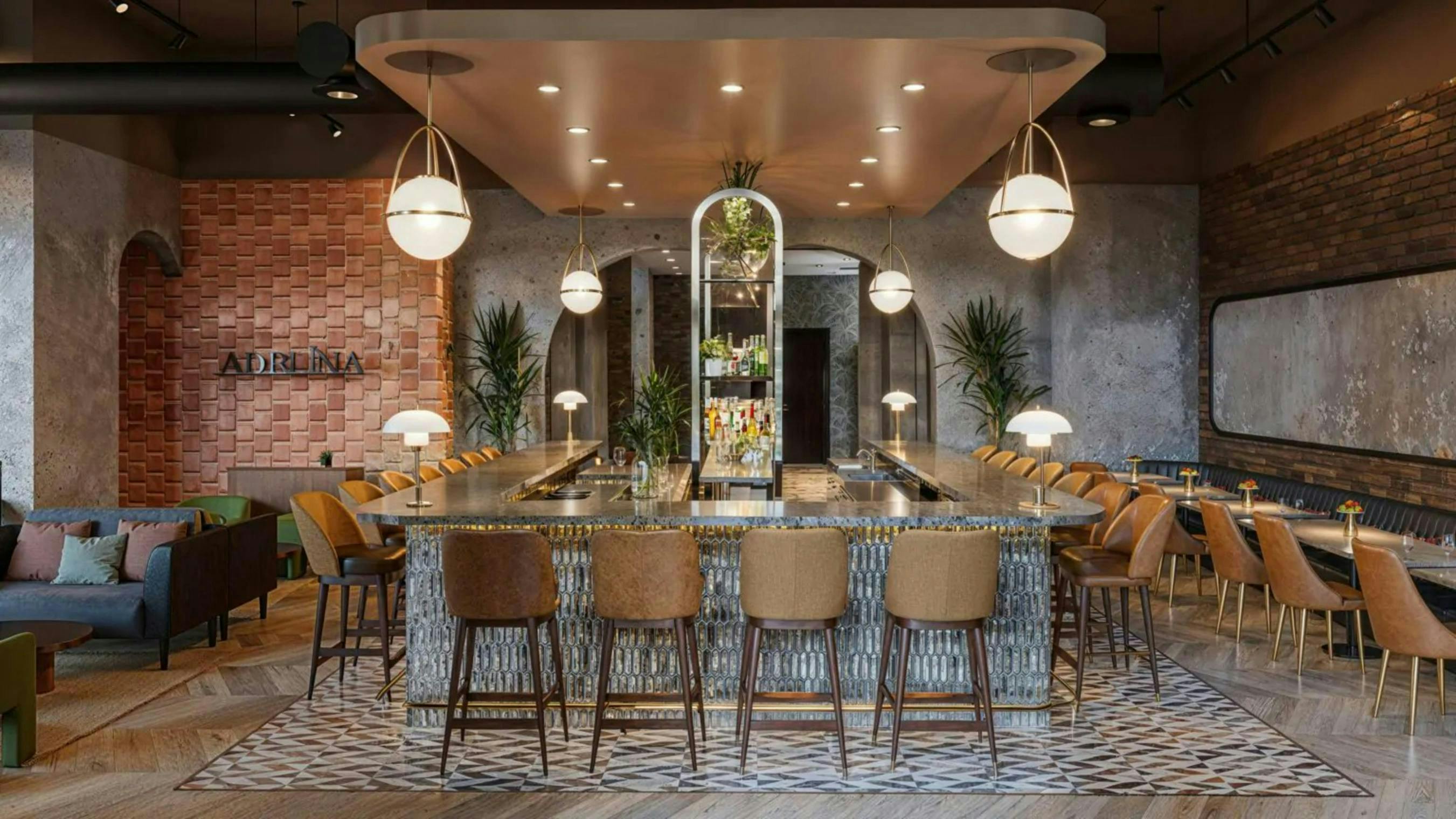Wholesale Restaurant Furniture: A Comprehensive Guide
Wholesale restaurant furniture supplies tables, chairs, and fixtures in bulk for commercial spaces. Buyers evaluate materials, durability, and design consistency to match brand identity. Bulk orders lower costs while ensuring coordinated, long-lasting furnishings.

Understanding Wholesale Restaurant Furniture
Wholesale restaurant furniture refers to tables, chairs, booths, bar stools, and other seating or dining equipment purchased directly from manufacturers or distributors at reduced prices. By buying in bulk or through wholesale channels, restaurant owners can significantly lower their initial investment or renovation costs. This approach is particularly beneficial for new restaurants, chains expanding their locations, or independent eateries undergoing remodeling. Wholesale options provide access to commercial-grade furniture designed to withstand heavy daily use while maintaining aesthetic appeal.
The primary advantage of wholesale purchasing lies in cost savings, but it also offers variety and customization options. Many wholesalers work directly with manufacturers, allowing buyers to request specific materials, finishes, or dimensions that align with their restaurant’s theme and functional requirements. Understanding the wholesale market helps restaurant owners make informed decisions that balance budget constraints with quality and design preferences.
Key Considerations When Choosing Restaurant Furniture
Selecting the right furniture involves more than finding the lowest price. Durability is paramount in a commercial setting where furniture endures constant use, spills, and movement. Materials such as solid wood, metal frames, and commercial-grade upholstery are designed to last longer than residential alternatives. Additionally, furniture should complement the restaurant’s concept—a fine dining establishment requires different seating than a casual café or fast-food outlet.
Space planning is another critical factor. Tables and chairs must fit comfortably within the dining area while allowing adequate room for staff to move and serve customers efficiently. Ergonomics also matter; uncomfortable seating can negatively impact the dining experience and reduce customer satisfaction. When sourcing wholesale restaurant furniture, consider the layout, traffic flow, and the overall ambiance you wish to create.
Cost Insights and Pricing for Wholesale Restaurant Furniture
Pricing for wholesale restaurant furniture varies widely based on materials, design complexity, and order volume. On average, basic commercial-grade chairs can range from $30 to $100 per unit when purchased wholesale, while tables may cost between $100 and $500 depending on size and material. Booths and custom seating solutions typically fall in the $200 to $800 range per unit. Bar stools and counter-height seating generally cost between $40 and $150 each.
Buying in larger quantities often unlocks additional discounts, with some wholesalers offering 10 to 30 percent reductions for bulk orders. Custom orders or premium materials like solid hardwood or high-end upholstery will increase costs but may provide better longevity and aesthetic value. It is essential to request quotes from multiple suppliers and compare not only prices but also warranty terms, delivery options, and return policies.
| Product Type | Estimated Cost Range (Wholesale) | Typical Material Options |
|---|---|---|
| Dining Chairs | $30 - $100 per unit | Wood, metal, plastic, upholstered |
| Dining Tables | $100 - $500 per unit | Wood, laminate, metal base |
| Booths | $200 - $800 per unit | Upholstered, wood frame, vinyl |
| Bar Stools | $40 - $150 per unit | Metal, wood, upholstered seat |
| Outdoor Furniture | $50 - $300 per unit | Aluminum, resin, treated wood |
Prices, rates, or cost estimates mentioned in this article are based on the latest available information but may change over time. Independent research is advised before making financial decisions.
Finding Reliable Wholesale Suppliers
Identifying reputable wholesale suppliers is crucial to ensuring quality and timely delivery. Many suppliers operate online, offering catalogs with detailed specifications, customer reviews, and bulk pricing structures. Trade shows and industry expos also provide opportunities to view furniture in person, meet manufacturers, and negotiate deals. Networking with other restaurant owners can yield recommendations for trusted suppliers who consistently deliver quality products.
When evaluating suppliers, consider factors such as lead times, shipping costs, and customer service responsiveness. Some wholesalers specialize in specific styles or materials, so aligning your needs with their expertise can streamline the purchasing process. Always request samples or visit showrooms when possible to assess build quality and finish before committing to large orders.
Balancing Style and Functionality
Restaurant furniture must serve dual purposes: enhancing the dining environment and withstanding rigorous use. Style choices should reflect the restaurant’s brand identity—modern, rustic, industrial, or classic—while ensuring comfort and practicality. Mixing materials, such as pairing wood tabletops with metal bases, can create visual interest without sacrificing durability.
Functionality extends to maintenance as well. Furniture with easy-to-clean surfaces and stain-resistant fabrics reduces upkeep costs and keeps the dining area looking fresh. Stackable chairs and foldable tables offer flexibility for events or reconfiguring spaces. Thoughtful selection of wholesale restaurant furniture ultimately contributes to a cohesive, inviting atmosphere that encourages repeat visits.
Conclusion
Investing in wholesale restaurant furniture is a strategic decision that impacts both budget and customer experience. By understanding pricing structures, evaluating suppliers, and prioritizing durability alongside design, restaurant owners can furnish their spaces effectively without overspending. Whether opening a new location or refreshing an existing one, wholesale options provide the flexibility and affordability needed to create a welcoming environment that supports long-term success.




